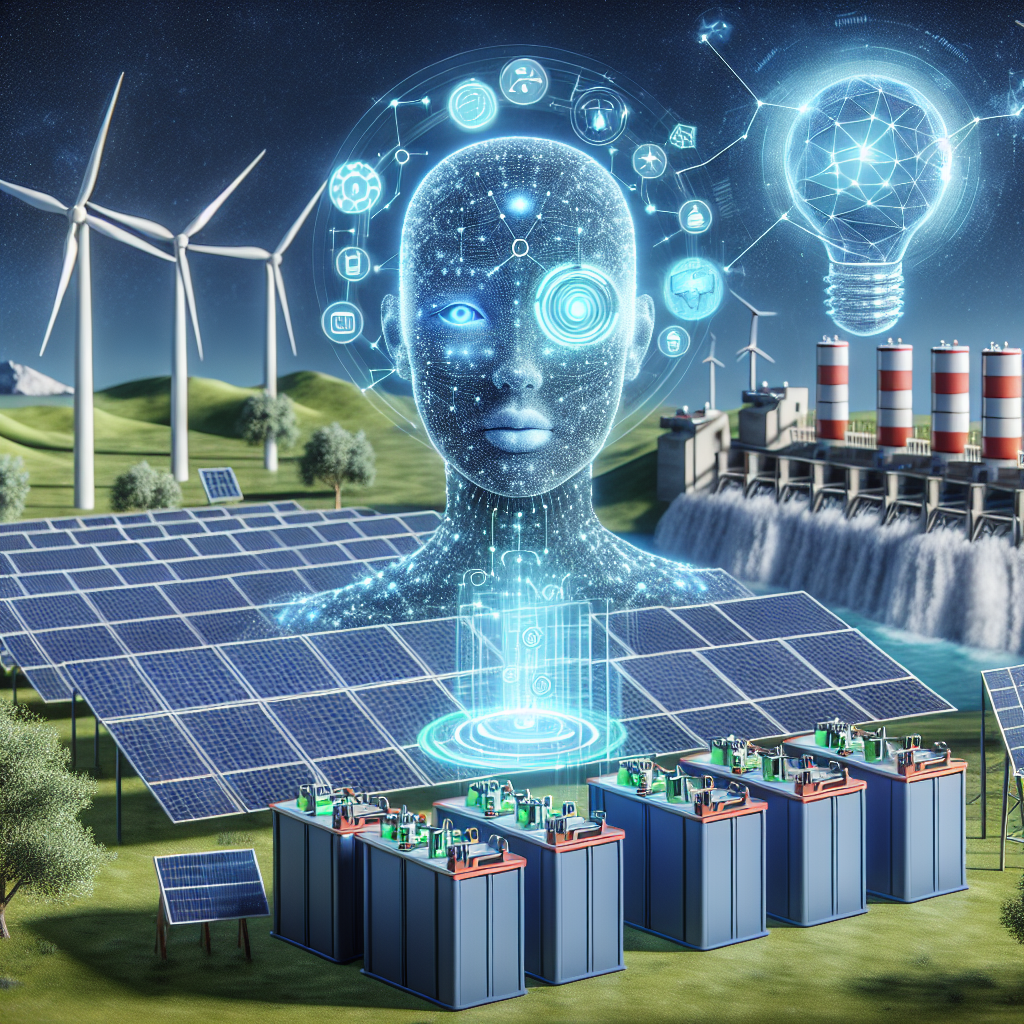As the world continues to shift towards renewable energy sources, the need for efficient energy storage systems has become increasingly important. One of the key challenges of renewable energy sources like solar and wind power is their intermittent nature, which can lead to fluctuations in energy supply and demand. This is where artificial intelligence (AI) comes in, offering a way to optimize energy storage systems and make the most of renewable energy sources.
AI has the potential to revolutionize the way we store and manage energy. By utilizing machine learning algorithms and advanced analytics, AI can help optimize energy storage systems in a number of ways. From predicting energy demand to optimizing battery performance, AI can help maximize the efficiency of energy storage systems and ensure a reliable and sustainable energy supply.
One of the key benefits of using AI in energy storage systems is its ability to forecast energy demand. By analyzing historical data and real-time information, AI algorithms can predict when and where energy demand will be highest, allowing energy storage systems to be optimized accordingly. This can help reduce energy waste and ensure that energy is stored and used efficiently.
AI can also help optimize battery performance in energy storage systems. By monitoring battery health and performance in real-time, AI algorithms can help maximize the lifespan of batteries and ensure that they are operating at peak efficiency. This can help reduce maintenance costs and improve the overall performance of energy storage systems.
In addition to optimizing energy storage systems, AI can also help integrate renewable energy sources into the grid more effectively. By analyzing weather patterns and energy production data, AI algorithms can help predict when and where renewable energy sources will be most productive, allowing energy storage systems to be optimized accordingly. This can help reduce the reliance on fossil fuels and increase the use of renewable energy sources in the grid.
Overall, the use of AI in energy storage systems has the potential to revolutionize the way we produce, store, and manage energy. By harnessing the power of machine learning and advanced analytics, AI can help optimize energy storage systems, reduce energy waste, and increase the use of renewable energy sources in the grid. As the technology continues to advance, we can expect to see even greater improvements in the efficiency and sustainability of energy storage systems.
FAQs:
Q: How does AI optimize energy storage systems in renewables?
A: AI utilizes machine learning algorithms and advanced analytics to predict energy demand, optimize battery performance, and integrate renewable energy sources into the grid more effectively.
Q: What are the benefits of using AI in energy storage systems?
A: AI can help reduce energy waste, increase the efficiency of energy storage systems, and improve the reliability of renewable energy sources in the grid.
Q: How can AI help maximize the lifespan of batteries in energy storage systems?
A: By monitoring battery health and performance in real-time, AI algorithms can help ensure that batteries are operating at peak efficiency and maximize their lifespan.
Q: How does AI help integrate renewable energy sources into the grid more effectively?
A: AI analyzes weather patterns and energy production data to predict when and where renewable energy sources will be most productive, allowing energy storage systems to be optimized accordingly.
Q: What are the future prospects of AI in energy storage systems?
A: As the technology continues to advance, we can expect to see even greater improvements in the efficiency and sustainability of energy storage systems, leading to a more reliable and sustainable energy supply.

